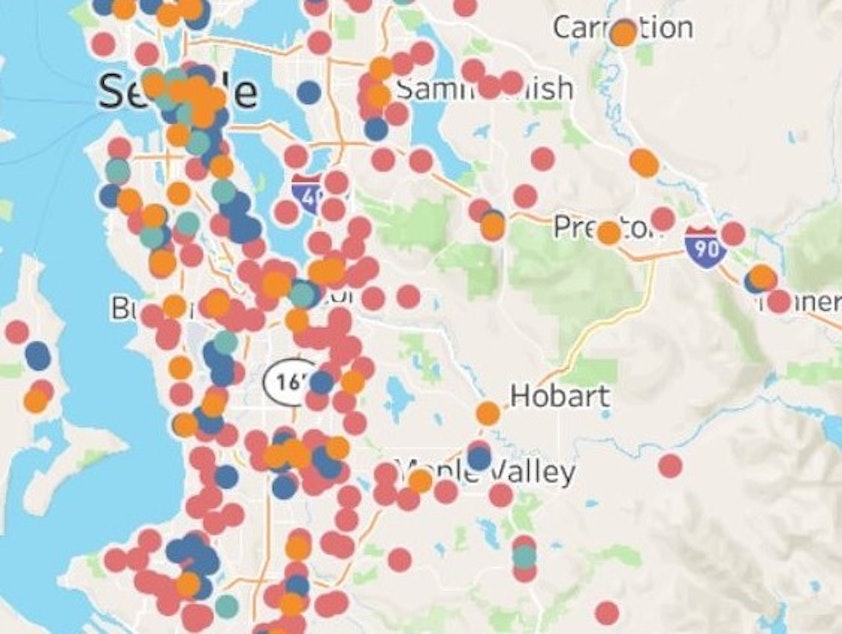Number of area families going without enough food rises

More people are seeking food assistance due to the Covid-19 pandemic, and a recent census survey shows food insecurity has doubled in King, Pierce, and Snohomish counties, where 1 out of 10 people now say they don’t have enough food for the week.
Elizabeth Kimball is the food security program manager for Public Health — Seattle & King County.
This interview has been edited for clarity.
She says many of the people affected are families, and young children.
We're seeing that households with children are more impacted than households without children. Typically, what we see in food insecurity data is that families with children will often protect their children by having the adults reduce their portion size, or skip meals so that their children can eat.
This survey is showing us that among the families that are experiencing food insecurity, one-third of them are saying that their children are also not able to eat. It's not only that the adults are skipping meals, or reducing portion sizes, but the children are not as protected, and they're also going without food.
Beyond hunger, explain for us why food stability matters so much.
One of the first things that happens when you don't have enough food is just an increase in stress. The next stage would be not getting enough nutrients. Especially for children, we worry about the impact of just proper development in childhood.
It's very important for children to have that sense of stability. Worrying about where their next meal is going to come from should just not be happening, regardless of being in a pandemic.
Tell us a little bit about the role that food banks are playing now, and other community groups that are trying to rise to the occasion.
What we're hearing from food banks is that they are seeing about a doubling of demand of the number of people that are coming for food. Food banks are a really important part of our safety net system. Some people don't qualify for government benefits for a variety of reasons. Having neighborhood based nonprofits, or churches, or other community groups that are able to provide food in the moment when people need it is quite critical.
What would you say to someone listening who is wondering how they can help?
One of the things you can do is volunteer at your local food bank. What we're hearing from food bank directors is that they need long-term volunteers, people who are willing to get trained and stay for three to six months to really be a constant support.
But they also are looking for people to deliver groceries to people's homes. As you can imagine, with the stay-at-home order, and physical distancing, coming to a food bank to pick up food can be a challenge for some people, especially older adults. So home deliveries has really increased in demand. Volunteering to be drivers would be a great thing that you can do for your community to help out.
Food Insecurity Resources:
Volunteer and In-kind Response opportunities
Listen to the interview by clicking the play button above.





